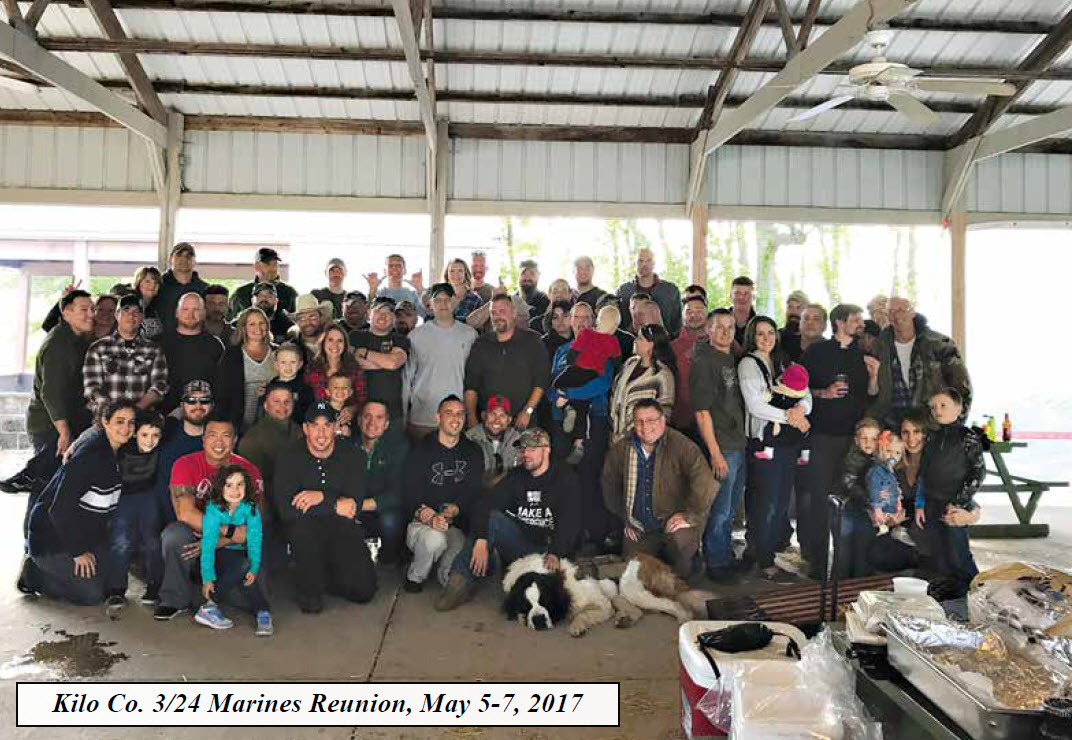All Things Soldier: “We’re Not Broken, We Don’t Need To Be Fixed. … We Just Need Each Other”
 By: Ali Elizabeth Turner
By: Ali Elizabeth Turner
“Finally!” I wanted to holler as I sat and read in the kitchen of Keep Athens-Limestone Beautiful where my Athens Now desk is officially located. The reason for my squelched outburst of relief is that someone has come up with something that has been proven to work to help veterans who have returned from combat, and that is a reunion. “Well, duh,” you might say, but before you do, let me try to explain what vets go through at the hands and mouths of well-meaning friends, family and, sadly, professionals. Also, be forewarned: This might turn into a series. The findings are that important; so you might need to saddle up for more than a one-day ride.
Here’s what happens to vets who have been in a combat zone, and it is not because anyone is trying to harm or cause frustration. In a word, returning vets feel like they are on Mars, and Mars has become a nanny state. People try to get them to “open up,” but the problem is, when they do, people who have no frame of reference get uncomfortable and feel like they need to say something “to fix it.” Or, and this has become a caricature, vets get asked some version of “Did you kill anyone?” Neither approach helps at all, and the biggest reason is that those around haven’t earned the right to ask the question in the first place, and that’s because they weren’t there. Rule number one: Let a vet be the one to decide what, if, when, who, where, and why a subject gets broached, and then shut up and listen without judgment.

OK, “the uninitiated” may not be the ones who get to ask the tough questions, but the ones who were actually there do, and that is why vet-centered, vet-designed weekend retreats are becoming a formidable therapeutic modality in their own right. As is the case with most great discoveries, this one was made completely by accident. A group of Marines had been in the Great Sandbox, and let’s just say they suffered more than getting sand thrown in their eyes. One guy from their group decided to have an almost impromptu reunion about five years after they got back, tracked everyone down, and the results were miraculous. Of course a foundation was formed, but the great thing is that everyone who would normally feel the professional need to jump in and control is instead letting these guys find their way through, discover what works and what doesn’t, and a movement has been born.
The name of the Marine who planned the first reunion is James Ferguson, and the name of his outfit is Marines of India Battery, 3rd Battalion, 12th Marines. They spent a weekend in 2015 camping outside (because nature has a healing role in all this), hanging out, celebrating their accomplishments, grieving for and honoring the fallen on their own terms, eating great food, fishing, listening to a live band, playing games, and just reconnecting. There are professionals on duty but out of sight in case things get messy; and there is nothing in the weekend to trigger “white-coat syndrome,” the name given to the added stress that can occur when someone with letters after their name is in charge of a situation. The vets run it, and it works.
Ferguson, who has gone on to organize and further develop the Warrior Reunion Foundation says this: “I firmly believe that the most important factor in success in life after service is remaining connected with those with whom you served. It’s been the most important factor in my success, and I think it’s often what’s missing in the equation.” More than anything, vets are given respect for their experience, and as the subtitle of this article says, “We’re not broken, we don’t need to be fixed. … We just need each other.” More on that next time, and if you can’t wait ‘til then, please go to www.warriorreunionfoundation.org to find out how you can attend, organize, or support a reunion.
By: Ali Elizabeth Turner